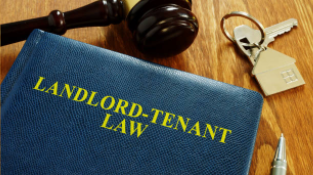In the privacy of one’s home, an individual can exercise their right to be let alone. In the state of Florida, there are tenant rights to give renters peace of mind when it comes to their privacy and safety at home.
Indeed, a landlord will need access to a rental unit on occasion, whether to make repairs to the building, take care of emergencies, or conduct some type of routine maintenance.
Nonetheless, it does not mean that just because a renter does not own the property, that a landlord may have unlimited access to the rental unit. In Florida, tenants and landlords have specific rights and responsibilities under the law, which includes respecting each other’s privacy.
In this article, you will discover if a landlord can enter the premises without permission in Florida.
Landlords Must Give Notice Before Entering a Rental Unit
In Florida, any landlord who wishes to enter a rental unit must give notice to the tenant before doing so. It includes situations in which the landlord needs to show the property to prospective new tenants, purchasers, or contractors.
The notice must be given at least 12 hours before the time intended for the visit. The tenant, after receiving the notice, must agree to an earlier timeframe, meaning the landlord can enter at that time.
On the other hand, the landlord can only enter at a reasonable time, which is defined by Florida statutes as between 7:30 a.m. and 8:00 p.m.
Landlords Have Right of Entry in Specific Situations
There are situations in which it is not feasible for a landlord to notify a tenant before entering a rental unit. In this sense, Florida law provides that a landlord has the right of entry into a rental unit without giving statutory notice in specific situations.
Landlords have the right to entry during emergencies, such as a fire or flood, without necessarily providing early notice.
Situations in which the tenant has unreasonably withheld consent to provide access to the property also permit the landlord to enter without notice.
In case the landlord has reasonable cause to believe the tenant has abandoned the property, it is possible to enter legally and check if the situation is okay.
Plus, in case it is reasonably necessary during a tenant’s extended absence, a landlord may enter a property without notice, given that that the tenant did not notify the landlord of the absence.
In such cases, an extended absence can be defined as one-half of the time of periodic rental payments.
Tenants Must be Reasonable
Even though the tenant’s right to privacy is essential, Florida law provides that tenants cannot unreasonably deny entry to landlords.
Given that the landlord’s right to access a property in his/her possession is undeniable, the law prohibits tenants in Florida to deny the landlord reasonable access to the rental unit.
For instance, no tenant has the right to pretend that a notice was not delivered. Plus, tenants cannot withhold consent after receiving the landlord’s notice of its intention to enter the property.
The Importance of Landlord-Tenant Laws
Florida has one of the highest renter populations in the United States, counting over 13% of the state population. In this sense, while most landlords are law-abiding, unfortunately, there are exceptions.
There are many cases involving a landlord trespassing a rental unit without the tenant’s consent, especially when the tenant is on vacation.
To illustrate the situation, let us analyze an actual situation that occurred in South Florida to demonstrate how important landlord-tenant laws are.
A tenant in South Florida started to notice odd situations after leaving his apartment to work. Every time he got back, he saw lights left on and several items placed differently.
Thinking it was an issue with thugs or burglars, he set up camera surveillance trying to catch up with the situation in video. However, what he discovered was that his landlord was trespassing his apartment without notice.
The tenant was shocked to see his landlord entering his apartment without notice, looking inside his refrigerator, opening his closet, and moving items around the home without permission.
How to Deal with a Landlord’s Invasive Behavior in Florida
If you believe that your landlord violated your privacy by entering a rental unit without notice, we strongly recommend you seek guidance from an expert attorney in Florida.
In some situations, a simple letter to the landlord (signed by the attorney) addressing the issue directly will easily resolve the problem.
On the other hand, there are situations in which the landlord’s behavior incurs harassment and/or intrusion, it may be necessary to file a lawsuit against them.
We Can Help You Protect Your Tenant’s Rights in Florida
If you are experiencing issues with a landlord in Florida, do not let time pass you by. An expert attorney from Jurado & Farshchian can help to resolve your situation.
Get in touch with Attorney Romy B. Jurado today by calling (305) 921-0976 or by sending us an email to [email protected].





